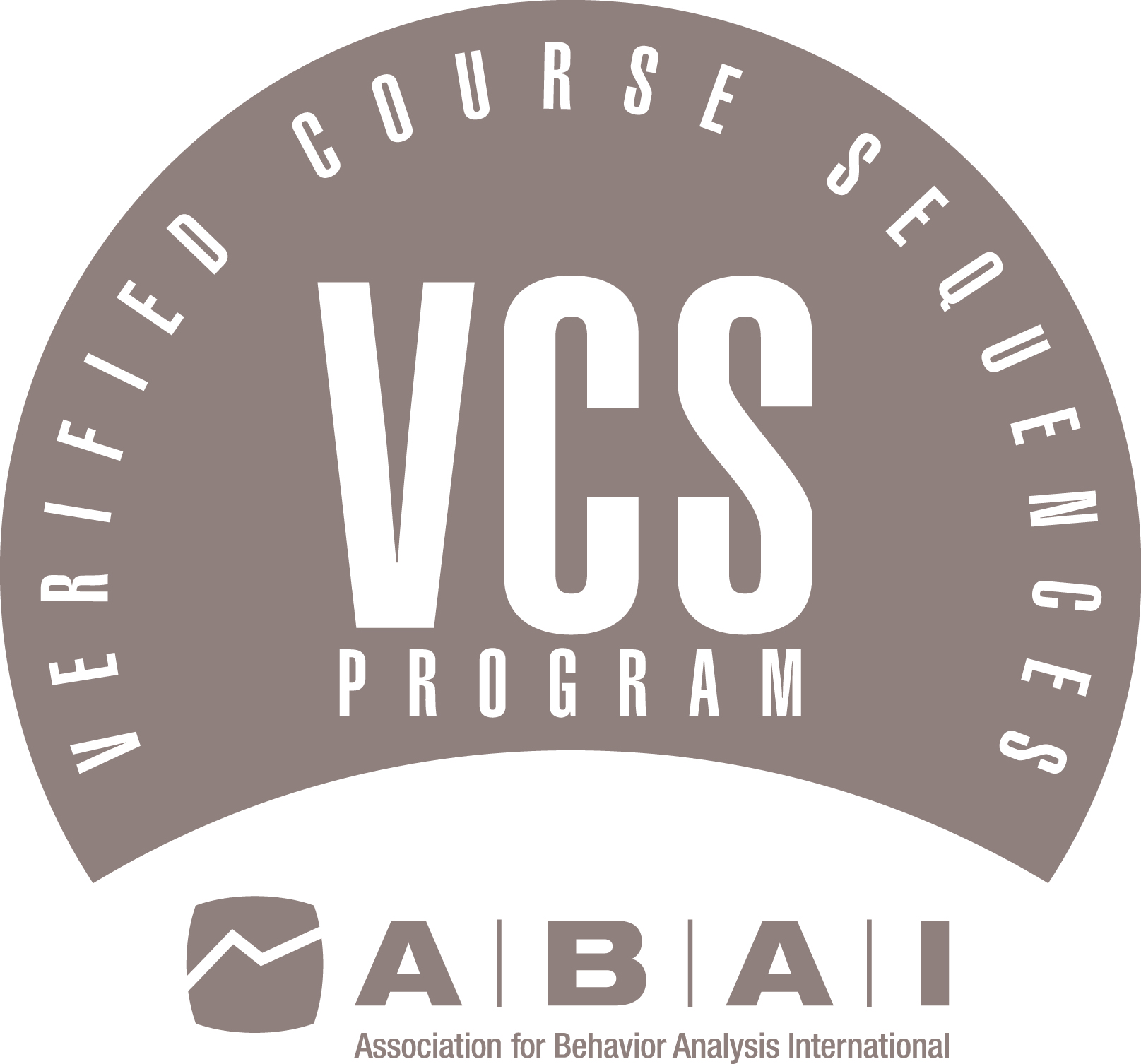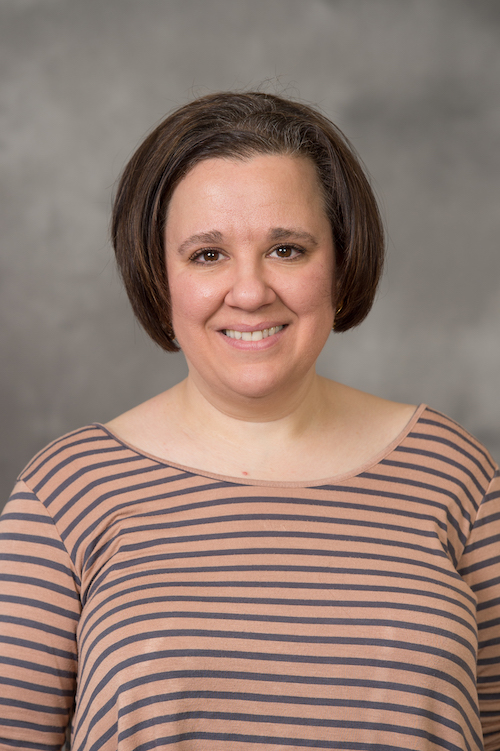M.S. in Applied Behavior Analysis
The Master of Science in Applied Behavior Analysis degree program teaches students to become independent and professional practitioners of applied behavior analysis.
The M.S. in Applied Behavior Analysis program has been designed to meet the BCBA Pathway 2 coursework requirements. Students will need to meet additional requirements to qualify for the BCBA eligibility. The program is also actively working on pursuing accreditation by the Association for Behavior Analysis International (ABAI). In the very near future, the program will apply for Tier Model Recognition at Tier 2a, prior to applying for Accreditation at Tier 1.
Beginning in the Fall semester of 2024 the M.S. in Applied Behavior Analysis program will become a 36-credit hour degree. Please see the updated plan of study to learn more about the revised curriculum. In addition, effective calendar year 2025, this program will move to a fall term only admit process. To start in this program in 2025 or beyond, the application priority deadline to have all materials in will be March 15 and the hard deadline for applications will be May 15. Applications submitted by these deadlines will be reviewed as they are received.
The Master of Science degree in Applied Behavior Analysis prepares students with training in the science of learning and behavior and prepares them to work as Board Certified Behavior Analysts (BCBA). Applied Behavior Analysis (ABA) is a scientific approach to the study of behavior. Behavior analysts work directly with individuals to improve their social, educational, health, adaptive skills, and behavioral outcomes through the development of programming based upon the principles of ABA. Behavior analysts are trained to describe behavior, explain, predict, and analyze the occurrence and non-occurrence of behavior, and change behavior through the development of programming based on behavior analytic principles.
BCBAs provide services within mental health, educational, and human services environments that may include collecting and analyzing data, writing and evaluating behavior intervention plans, training others to implement components of treatment plans, and overseeing the implementation of treatment plans. BCBAs are qualified to provide services to individuals with a variety of needs such as academic performance, skill deficits (e.g., communication, adaptive behavior and functional skills), and problem behavior (e.g., aggression, self-injurious behavior), and social interactions. BCBAs also provide supervision to Board Certified Assistant Behavior Analysts (BCaBA) and Registered Behavior Technicians (RBT).
Mission Statement
The mission of the M.S. in Applied Behavior Analysis program at the University of Michigan-Dearborn is for its graduates to develop an understanding of the depth, breadth, and scope of behavior analysis. Through coursework and practical experiences firmly rooted in the science of behavior, the program seeks to train highly skilled behavioral practitioners who utilize data-based and empirical approaches to develop socially valid treatment for those they serve.
Through coursework firmly grounded in theory, with an emphasis on application of theory to socially significant and effective practice, the M.S. in ABA program provides students with an excellent foundation to meet the proficiencies mandated by the Behavior Analyst Certification Board (BACB). Students will be prepared to complete the required supervised field work and sit for the Board Certified Behavior Analyst (BCBA) examination. For additional information on licensure requirements across the United States, please visit the U.S. Licensure of Behavior Analysts page.

Training Model
The program’s training philosophy is based on the scientist-practitioner model in which students in training as practitioners of applied behavior analysis be provided with a strong foundation in research and practice in the science of behavior. Students are trained as clinicians who use research and embrace the scientific approach to influence and guide their practice. The program integrates theory (through coursework in the theoretical foundations of the science of behavior), practice (through supervised experiential opportunities in clinical settings), and research (through developing proficiency as a consumer of research and by producing research).
Program Goals
Graduates of the Master of Science in Applied Behavior Analysis will:
- Describe and provide examples of the critical concepts and principles of Applied Behavior Analysis (ABA).
- Describe and apply research methodology and measurement strategies used in the implementation and management of ABA.
- Describe and apply the principles of ABA in relation to individuals with a variety of disabilities in a range of clinical, educational, pre-vocational/vocational, home, and community settings.
- Describe and apply behavioral assessment procedures, including identification of target behaviors, developing operational definitions, conducting functional behavior assessment/functional analysis.
- Accurately graph, visually analyze, and interpret behavioral data, including functional analysis data.
- Describe ethical issues related to ABA service delivery with individuals with developmental disabilities and other mental health needs.
- Describe and apply principles of experimental design, including single-subject research methodology.
- Develop Behavior Intervention Plans based upon the results of a functional analysis.
Visit the University Catalog to learn more about required coursework for the M.S. in Applied Behavior Analysis. Students can also learn about the 4+1 Accelerated Program that is designed for undergraduate students from any major who have the interest, and demonstrated ability, to pursue the MS in Applied Behavior Analysis.
Program Overview
The M.S. in Applied Behavior Analysis degree involves intensive instruction in ABA through its coursework. Three practicum experiences are required throughout the program and are completed at the student's place of employment in an ABA setting. These practica allow students to apply course content under the guidance of other established BCBAs in practical, clinical settings. A final, culminating project is also required allowing students integrate their knowledge and skills in a project designed by them. Final, preparation for the BCBA examination is infused throughout the program's coursework. The Applied Behavior Analysis program at the University of Michigan-Dearborn has contracted with Behavior Development Solutions (BDS) to offer students access to their curriculum supplement and exam preparation tools. BDS offers a rigorous and thorough training program related to all elements covered in the program's coursework and the certification exam. Throughout the program, students will progress through the assigned BDS modules to not only assist you in learning the course material, but also achieve fluency in the content in preparation for the certification exam.
Pass-Rate Data are available at the BACB website. Pass-rate data are not published for programs with fewer than six first-time candidates in a single year.
Part-time students can expect to complete the program in eight semesters. Evening courses are available. The program is not available online.
The M.S. in ABA Program Handbook provides additional information for students.
Admission Requirements
Students must submit the following items with their application:
- Bachelor's degree from an accredited institution
- Official transcripts from all post-secondary institutions attended
- 3.0 GPA or higher on submitted transcripts
- Two professional letters of recommendation
- Personal statement
The GRE is not required for admission to this program. The Office of International Affairs lists additional admission requirements for international students.
Completion Requirements
Before exiting from the M.S. in Applied Behavior Analysis, you need to complete two steps:
Exit Survey:
The purpose of this survey is to assist the College of Education, Health, and Human Services with the evaluation of the master’s degree program and to serve as a guide for program development. The Exit Survey is a requirement for completion of the program.
Course Offerings
The Association for Behavior Analysis International has verified the following courses toward the coursework requirements for eligibility to take the Board Certified Behavior Analyst® or Board Certified Assistant Behavior Analyst® examination. Applicants will need to meet additional eligibility requirements and demonstrate they reside in an authorized country before they can be deemed eligible to take the examination. Please visit the Association for Behavior Analysis International for additional information on the University of Michigan-Dearborn's Verified Course Sequence.
Verified course content hours by course
| Content Areas and Courses | BACB Compliance Code and Disciplinary Systems; Professionalism | Philosophical Underpinnings | Concepts and Principals | Measurements, Data Display and Interpretation; Experimental Design | Behavior Assessment | Behavior-Change Procedures; Selecting and Implementing Interventions | Personnel Supervision and Management |
|---|---|---|---|---|---|---|---|
| EDC 506 | 45 | ||||||
| EDC 507 | 45 | ||||||
| EDC 516 | 45 | ||||||
| EDC 580 | 45 | ||||||
| EDC 622 | 45 | ||||||
| EDC 623 | 45 | ||||||
| EDC 624 | 15 | 30 |
Contact Information
CEHHS Office for Student Success
262 Fairlane Center South (FCS)
[email protected]
313-593-5090
Academic Advisor

Kim Killu, Ph.D., LLP, BCBA-D, LBA.
To schedule an appointment with Dr. Killu please contact:
CEHHS Office of Student Success
email: [email protected]
phone: 313-593-5090.
